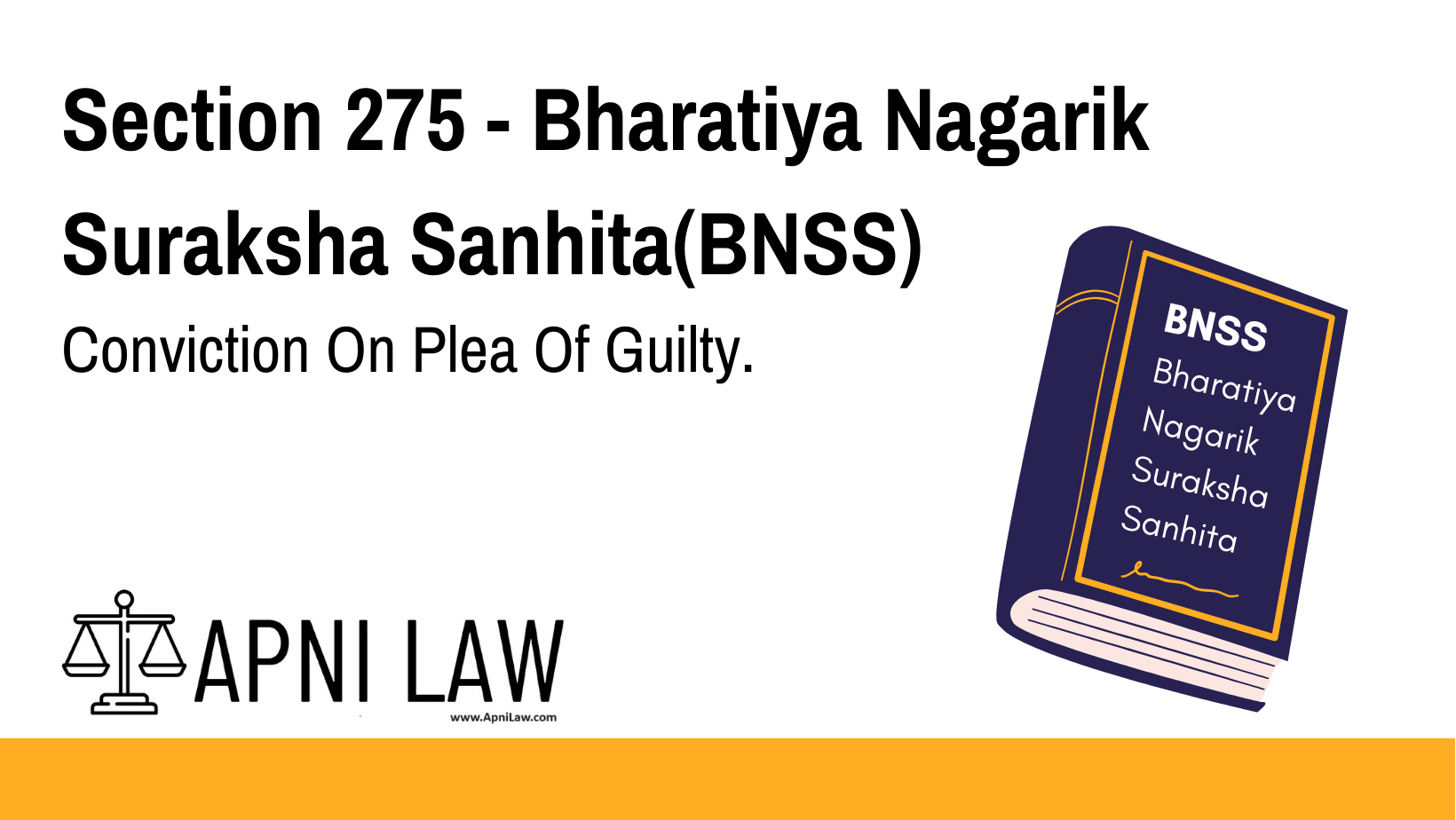Code: Section 275 BNSS
275.
If the accused pleads guilty, the Magistrate shall record the plea as nearly as possible in the words used by the accused and may, in his discretion, convict him thereon.
Explanation of Section 275 BNSS
Section 275 of the Bharatiya Nyaya Sanhita (BNSS) lays down the procedure for handling a situation where the accused pleads guilty in a case. It gives the Magistrate the responsibility to accurately record the plea in the words used by the accused and allows the Magistrate the discretion to convict the accused on the basis of that plea.
Key Provisions:
- Recording the Plea:
The Magistrate must record the plea of guilty using the exact words of the accused. This ensures transparency and accuracy in the legal process. - Discretionary Conviction:
After recording the plea, the Magistrate has the discretion to convict the accused based on their admission of guilt.
Illustration
Example 1: Accused Pleads Guilty
The accused appears before the Magistrate and admits to the charge against them. The Magistrate records the plea as “I am guilty” or the equivalent in the words used by the accused. The Magistrate then convicts the accused based on this admission.
Example 2: Accused Pleads Guilty with Explanation
The accused admits their guilt but provides an explanation for their actions. The Magistrate records the plea as, “I am guilty, but I did it under duress.” The Magistrate may still convict the accused, taking the explanation into account during sentencing.
Common Questions and Answers on Section 275 BNSS
1. What happens if the accused pleads guilty?
- Answer: If the accused pleads guilty, the Magistrate will record their plea in the words used by the accused and may convict them based on that plea.
2. Can the Magistrate convict immediately after the guilty plea?
- Answer: Yes, after recording the plea, the Magistrate may, at their discretion, convict the accused immediately.
3. Is the Magistrate required to explain the consequences of a guilty plea?
- Answer: While this section doesn’t explicitly require an explanation of the consequences, the Magistrate generally ensures that the accused is aware of the implications of their guilty plea before proceeding.
Conclusion
Section 275 BNSS ensures that when the accused pleads guilty, their plea is accurately recorded, and the Magistrate has the discretion to convict the accused immediately. It serves to streamline the process when the accused admits guilt, enabling a more efficient resolution of cases.








